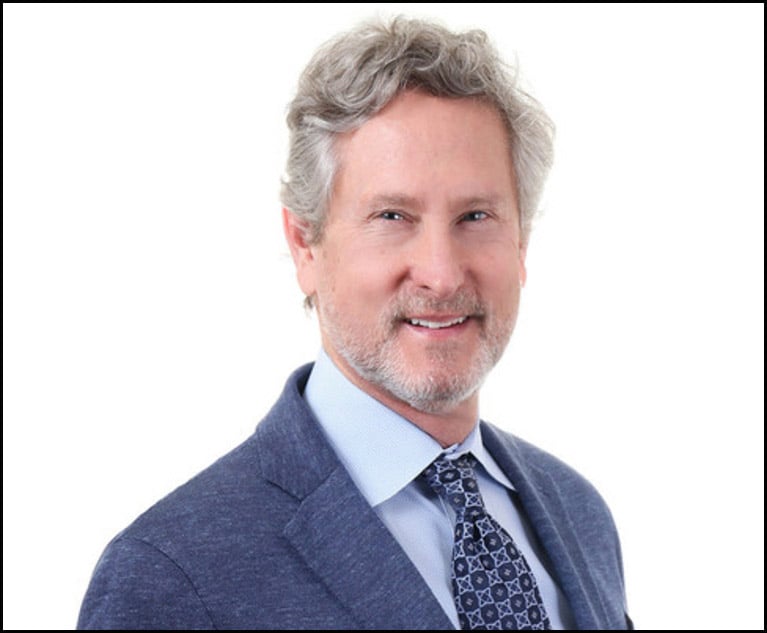Shout-Out: Winston and Cleary Lawyers Roll to Victory for Bearing Makers
It's the first decision on class cert in the sprawling Automotive Parts Antitrust Multidistrict Litigation, and is good omen for defendants in other pending cases.
January 10, 2019 at 01:33 PM
3 minute read
 Jeffrey Kessler of Winston & Strawn. 2015. HANDOUT.
Jeffrey Kessler of Winston & Strawn. 2015. HANDOUT.
With billions of dollars in potential damages on the line, Winston & Strawn co-chairman Jeffrey Kessler and Cleary Gottlieb Steen & Hamilton partner Jeremy Calsyn led the fight to defeat class certification in an antitrust suit by direct purchasers of automotive and industrial machinery bearings.
It's the first decision on class cert in the sprawling Automotive Parts Antitrust Multidistrict Litigation, and is good omen for defendants in other pending cases.
The plaintiffs alleged that bearing makers conspired to fix prices—an accusation bolstered by assorted investigations and fines by antitrust regulators in the U.S., Japan, the EU and China.
“As a result of defendants' unlawful conduct, plaintiffs and members of the proposed class … paid higher prices for bearings than they would have paid in a competitive market, and therefore have suffered injury to their business and property,” stated the complaint, which was first filed in U.S. District Court for the Eastern District of Michigan in 2012.
The would-be class included of all purchasers of ball bearings, tapered roller bearings, roller bearings, and mounted bearings from 2004 to 2014.
But earlier this week, U.S. District Judge Marianne Barrani in the Eastern District of Michigan declined to certify the class.
While she found the plaintiffs satisfied the requirements for numerosity and commonality, she ruled that they fell short when it came to typicality and adequacy.
“The court is not persuaded that the record establishes the requisite uniformity of illegal practices through which the named [direct purchaser plaintiffs] and absent class members sustained their alleged injuries,” she wrote.
The plaintiffs alleged the bearing makers used three tactics to carry out their conspiracy–coordinated price increases in response to price hikes imposed by steel suppliers, bid-rigging in connection with requests for quotations by automobile manufacturers and others, and collusion in responding to annual price reduction requests by big customers.
But the named plaintiffs don't include any of the car makers or other so-called original equipment makers. Barrani agreed with defense counsel that the named plaintiffs “do not have the incentive (or personal knowledge needed) to develop evidence at trial of bid rigging or [annual price reduction] collusion for customized bearings purchased by the dominant members of the putative class.”
She added, “[T]he court finds that the claims asserted by the named [direct purchaser plaintiffs] are not typical of the claims asserted by absent class members … Accordingly, they cannot show that they will adequately represent the interests of class members that complain of injury as a result of these allegedly unlawful activities.”
Kessler, who represented bearing maker NTN Corp., said in an interview that he and his clients are “very gratified that the judge gave this careful and thoughtful consideration and came to what we believe is the right conclusion.”
The firm also represented JTEKT Corp., with partner Heather Lamberg in the lead.
Plaintiffs counsel include Freed Kanner London & Millen; Kohn, Swift & Graf; Preti Flaherty Beliveau & Pachios; and Spector, Roseman, Kodroff & Willis.
This content has been archived. It is available through our partners, LexisNexis® and Bloomberg Law.
To view this content, please continue to their sites.
Not a Lexis Subscriber?
Subscribe Now
Not a Bloomberg Law Subscriber?
Subscribe Now
NOT FOR REPRINT
© 2025 ALM Global, LLC, All Rights Reserved. Request academic re-use from www.copyright.com. All other uses, submit a request to [email protected]. For more information visit Asset & Logo Licensing.
You Might Like
View All
Shareholder Democracy? The Chatter Elon Musk’s Tesla Pay Case Is Spurring Between Lawyers and Clients
6 minute read
Litigation Leaders: Mark Jones of Nelson Mullins on Helping Clients Assemble ‘Dream Teams’

Litigators of the Week: Rolling Back Elon Musk's $56B Tesla Compensation Package

Litigators of the Week: Quinn Emanuel Slashes $137M Racial Discrimination Verdict Against Tesla by Nearly 98%
Trending Stories
- 15th Circuit Considers Challenge to Louisiana's Ten Commandments Law
- 2Crocs Accused of Padding Revenue With Channel-Stuffing HEYDUDE Shoes
- 3E-discovery Practitioners Are Racing to Adapt to Social Media’s Evolving Landscape
- 4The Law Firm Disrupted: For Office Policies, Big Law Has Its Ear to the Market, Not to Trump
- 5FTC Finalizes Child Online Privacy Rule Updates, But Ferguson Eyes Further Changes
Who Got The Work
J. Brugh Lower of Gibbons has entered an appearance for industrial equipment supplier Devco Corporation in a pending trademark infringement lawsuit. The suit, accusing the defendant of selling knock-off Graco products, was filed Dec. 18 in New Jersey District Court by Rivkin Radler on behalf of Graco Inc. and Graco Minnesota. The case, assigned to U.S. District Judge Zahid N. Quraishi, is 3:24-cv-11294, Graco Inc. et al v. Devco Corporation.
Who Got The Work
Rebecca Maller-Stein and Kent A. Yalowitz of Arnold & Porter Kaye Scholer have entered their appearances for Hanaco Venture Capital and its executives, Lior Prosor and David Frankel, in a pending securities lawsuit. The action, filed on Dec. 24 in New York Southern District Court by Zell, Aron & Co. on behalf of Goldeneye Advisors, accuses the defendants of negligently and fraudulently managing the plaintiff's $1 million investment. The case, assigned to U.S. District Judge Vernon S. Broderick, is 1:24-cv-09918, Goldeneye Advisors, LLC v. Hanaco Venture Capital, Ltd. et al.
Who Got The Work
Attorneys from A&O Shearman has stepped in as defense counsel for Toronto-Dominion Bank and other defendants in a pending securities class action. The suit, filed Dec. 11 in New York Southern District Court by Bleichmar Fonti & Auld, accuses the defendants of concealing the bank's 'pervasive' deficiencies in regards to its compliance with the Bank Secrecy Act and the quality of its anti-money laundering controls. The case, assigned to U.S. District Judge Arun Subramanian, is 1:24-cv-09445, Gonzalez v. The Toronto-Dominion Bank et al.
Who Got The Work
Crown Castle International, a Pennsylvania company providing shared communications infrastructure, has turned to Luke D. Wolf of Gordon Rees Scully Mansukhani to fend off a pending breach-of-contract lawsuit. The court action, filed Nov. 25 in Michigan Eastern District Court by Hooper Hathaway PC on behalf of The Town Residences LLC, accuses Crown Castle of failing to transfer approximately $30,000 in utility payments from T-Mobile in breach of a roof-top lease and assignment agreement. The case, assigned to U.S. District Judge Susan K. Declercq, is 2:24-cv-13131, The Town Residences LLC v. T-Mobile US, Inc. et al.
Who Got The Work
Wilfred P. Coronato and Daniel M. Schwartz of McCarter & English have stepped in as defense counsel to Electrolux Home Products Inc. in a pending product liability lawsuit. The court action, filed Nov. 26 in New York Eastern District Court by Poulos Lopiccolo PC and Nagel Rice LLP on behalf of David Stern, alleges that the defendant's refrigerators’ drawers and shelving repeatedly break and fall apart within months after purchase. The case, assigned to U.S. District Judge Joan M. Azrack, is 2:24-cv-08204, Stern v. Electrolux Home Products, Inc.
Featured Firms
Law Offices of Gary Martin Hays & Associates, P.C.
(470) 294-1674
Law Offices of Mark E. Salomone
(857) 444-6468
Smith & Hassler
(713) 739-1250






